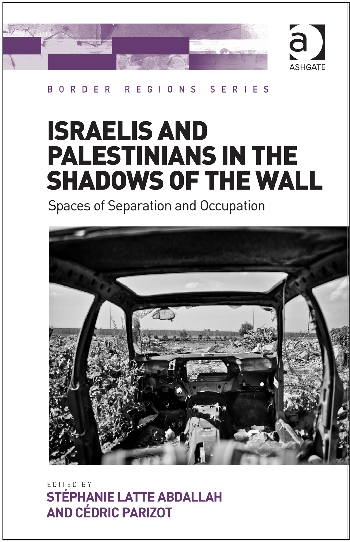Activists Without Borders

Various associations organise trips to Israel and/or to the Palestinian Territories. Someone who has no previous knowledge of the Near East and who takes part in a journey organised by a pro-Israeli group, would return to France with a very different vision of the Israeli-Palestinian conflict to that of someone who had travelled with a pro-Palestinian group.
For more information concerning the complete work, please click on this link.
Sometimes conflicts overflow their immediate field of operations. Such geographical spreading can lead to the exportation of violence to a neighbouring or to a more distant region. In the 1970s, for example, the Israeli-Palestinian conflict had violent repercussions in some European countries. This internationalization led to the highjacking of planes, to terrorist attacks, to the taking of hostages by various Palestinian groups and to targetted assassinations committed by the Israeli secret services.
However, the effects of war on other countries can also take much more peaceful forms. The existence of associations which support Israel or Palestine are a good example of this. These associations, which have greatly increased in number in France since the Six-Day War, use many different “repertoires”, such as demonstrations, the distribution of leaflets, the organisation of conferences, meetings with politicians or journalists, etc. Another very widespread form of action is the organisation of tours to Israel and/or to the Palestinian Territories. Such tours are not new but have increased considerably since the beginning of the second Intifada.

Available in:
Regions and themes
ISBN / ISSN
Share
Related centers and programs
Discover our other research centers and programsFind out more
Discover all our analysesThe Franco-German Brigade and the Revival of European Defense
One thing has been clear since Donald Trump's return to the White House: the very existence of the European unification project is threatened. Unless it develops a sovereign defense policy to counter the war in Ukraine and the weakening of American security guarantees, the European Union will continue to see its internal cohesion and external attractiveness wane.
Taking the Pulse: Can Europeans Build Their Independent Extended Nuclear Deterrent?
Confronted with a U.S. disengagement and the Russian threat, Europeans are reconsidering their stance on nuclear deterrence. Given the capabilities of the French and British arsenals, can Europe develop an independent nuclear deterrent?

RAMSES 2024. A World to Be Remade
For its 42nd edition, RAMSES 2024 identifies three major challenges for 2024.
A Transatlantic Defense Industrial Base? Two Contrasting Views
The evolving landscape of global defense cooperation has brought the transatlantic relationship between the United States (US) and Europe into sharp focus. As geopolitical tensions rise and the threat environment becomes more complex, the question of how Europe can best ensure its security while navigating its relationship with the United States has become paramount. This double feature report offers two contrasting views on the dynamics of US-Europe defense industrial relations, highlighting the challenges and opportunities that lie ahead for both parties.









